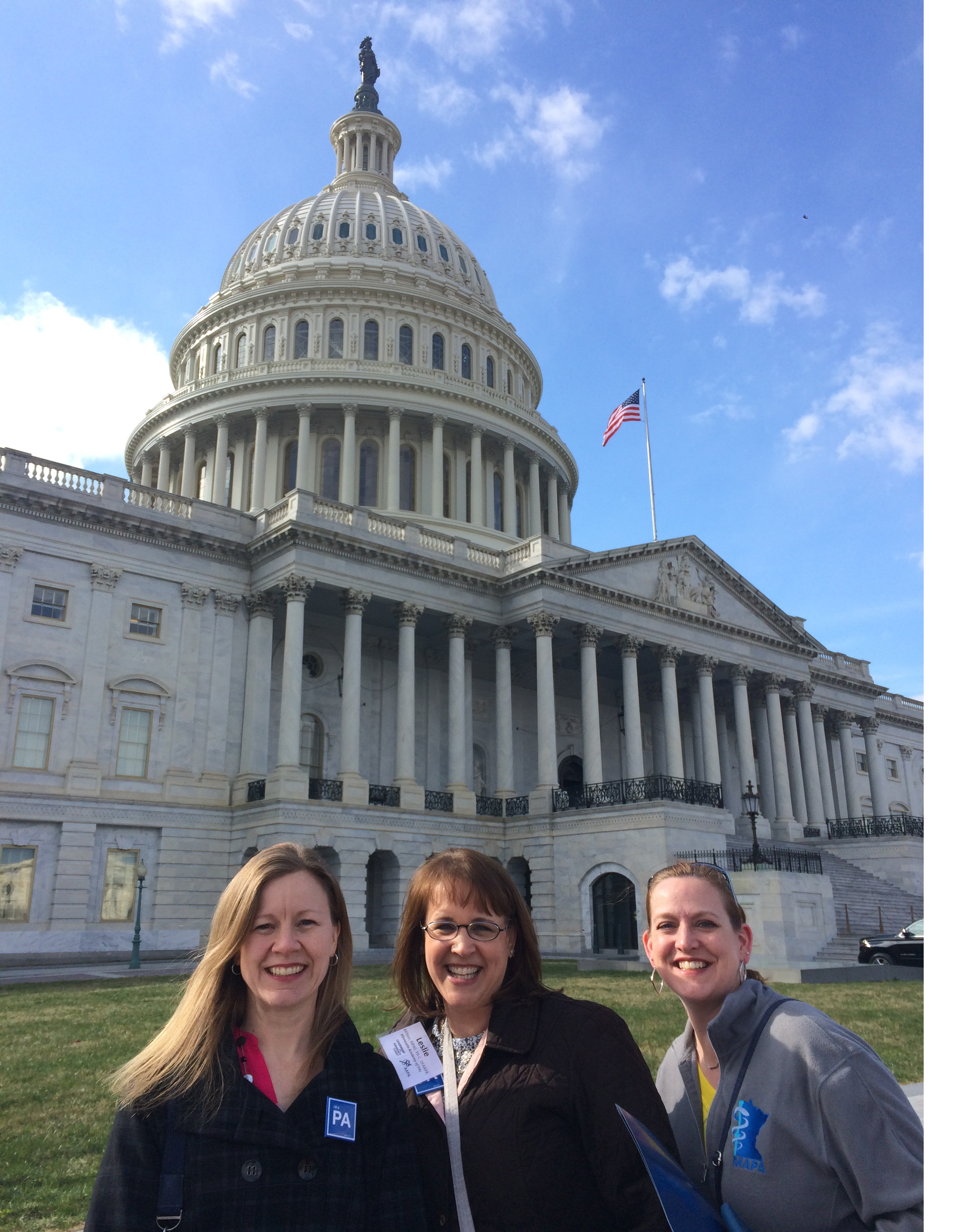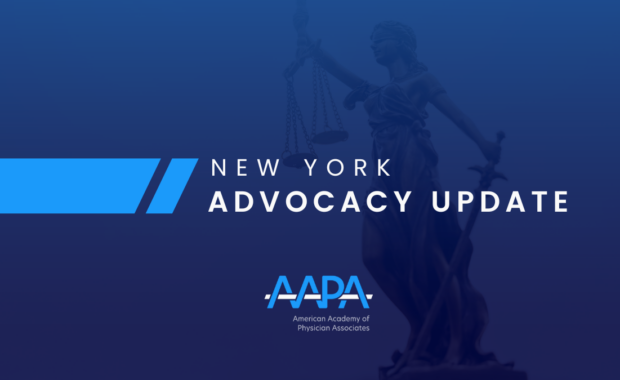PAs: Your Legislators Are Waiting to Hear From You!
4 Easy Steps to Becoming a PA Advocate
By Kristin Butterfield
While AAPA plays a critical role in representing the profession in Washington, D.C. and in state capitals, PAs have an equally important role when it comes to advocacy: telling the PA story. PAs can speak to legislators about practicing in a rural health clinic in the Dakotas, juggling patients at a busy suburban practice, or shaping the future of the profession as faculty in robust PA education programs.

Your perspective as a PA on the ground, in legislators’ communities, is vital to our collective message. We need PAs who are in the trenches, practicing medicine, and feeling the impact of restrictions on practice every day to be the voice of the profession.
Legislators will be making decisions that impact you, your patients, and your profession. The real question is, will you be part of that decision-making conversation? Here are four easy steps you can take right now to become a PA advocate:
- Know your legislators. The very first step to becoming an advocate is to know who your legislators are, and then get to know a bit about them: their priorities, interests, background, etc. You can learn about your state and federal legislators by going to AAPA’s Advocacy Action Center.
- Understand your priority issues. What is it you want to discuss? AAPA has lots of great resources online from state law summaries to issue briefs and fact sheets, to federal priorities and communications to Congress.
- Reach out to your legislators. Once you know who you want to talk to and what you want to talk about, reach out! Send an email, make a phone call, comment on your legislator’s social media channels, or, when you’re ready, have an in-person visit either locally or in Washington, D.C. Whatever your advocacy action, be sure to make it local and personal. Introduce yourself as a PA or PA student from the legislator’s community and share what you love about being a PA. Putting a personal face on often complicated issues will make your meeting memorable and make the legislator much more likely to engage and take action. Use AAPA’s Advocacy Action Center for all kinds of resources, toolkits, talking points, and even pre-written email messages that can be sent directly to your legislators.
[Minnesotans Take the PA Message to Capitol Hill #PAsontheHill]
- Speak from the heart. If you are worried that you’re unqualified to talk with legislators, here’s the truth: You don’t have to be a professional lobbyist to make an impact. Instead, focus on being an advocate. An advocate speaks from the heart for something they feel strongly about and they use personal examples, storytelling, and anecdotes with an emotional angle. As an advocate you will use the interpersonal skills you’ve honed as a clinician every day – the same ones you use to communicate to patients – to talk with and, ultimately, build relationships with legislators and their staff.
Many PAs and PA students have confessed that they are reluctant to advocate for the profession. All PAs can and should advocate for both patients and the PA profession. And, importantly, legislators are waiting to hear from you.
Legislators are always thinking locally. They have to know what impact an issue will have on their communities and constituents. As a member of a legislator’s community and a voter, you have enormous power and importance. Not only can you inform and shape a legislator’s decision-making but you can also effect change for the PA profession. Legislators want to hear from you, and they want to work together for your benefit – and theirs.
Kristin Butterfield is director of Grassroots and Political Advocacy at AAPA. Contact her at [email protected].
More Resources
Increasing Advocacy Effectiveness
Members only: Grassroots Advocacy Resources & Toolkits
Thank you for reading AAPA’s News Central
You have 2 articles left this month. Create a free account to read more stories, or become a member for more access to exclusive benefits! Already have an account? Log in.



